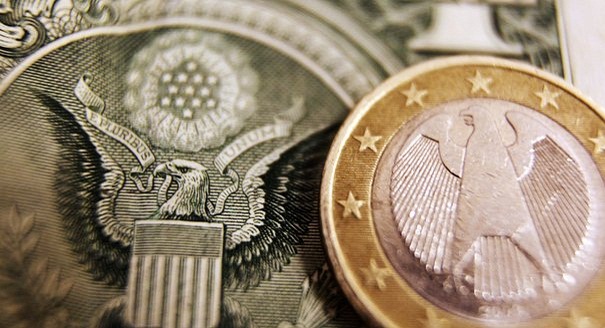Economic prospects for the eurozone continue to be weak. The IMF recently revised its growth estimate for the Eurozone downward from the 0.3 percent contraction expected in July to 0.4 percent. The IMF also stated that next year the euro zone economy is expected to grow by only 0.2 percent, rather than the 0.7 percent projected in July. Against this backdrop of depressed domestic demand, can trade provide a new impetus for the eurozone economies?
It is this hope that has revitalized the debate within Europe on the transatlantic free trade agreement. Indeed there seems to be a new focus on this EU-U.S. free trade agreement. However, it must still overcome many barriers before it becomes a reality.
Firstly there must be a clear political mandate on both sides of the Atlantic. That may be easier to get in Brussels than in Washington, where every administration initiative faces heavy Congressional scrutiny. However the goal of free trade with Europe may perhaps be sufficiently appealing to many constituencies in the United States for the partisan divide to be overcome.
If a political mandate can be obtained, then Brussels and Washington will have to deal with the criticism of undermining the multilateral trade regime. They would be initiating their bilateral trade talks at a time when the Doha “Development” Round has stalled. A U.S.-EU Free Trade Agreement would be seen as a severe blow to the multilateral process. It is doubtful whether the Doha Round can actually recover from this major challenge.
A third difficulty relates to differences in governance between the two major economic powers. Both the United States and the EU can be characterized as service economies, meaning that the share of services in the national income far outweigh industry and agriculture. Therefore the main challenge for the negotiators will be to reach an agreement on how services will be covered in the future agreement. But because of its federal system, services are regulated at different levels of government in the United States. Some services are regulated at the federal level while others remain regulated at the state level. Therefore getting an agreement on how services are to be regulated in the transatlantic free trade zone will certainly be demanding. A similar challenge can also be foreseen for the area of technical barriers to trade, or product standards as they are more commonly known.
But in addition to its positive impact on growth prospects, the entry into force of a transatlantic free trade agreement would have another, less emphasized but nonetheless equally important advantage. If a common approach can be fostered to regulation making and standards setting, the transatlantic partners can then hope to retain their privileged position as the global economic norm setters. At a time when much ink is being spilled over the alleged decline of the West, such an agreement would provide a strong foundation for protecting the soft economic powers of the West.




.jpg)

.jpg)